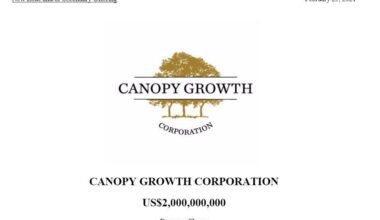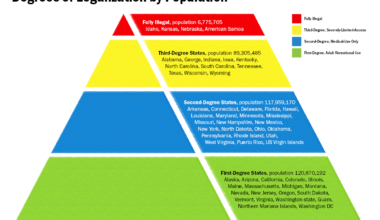(This is a contributed guest column. To be considered as an MJBizDaily guest columnist, please submit your request here.)

The No Deductions for Marijuana Businesses Act, proposed by U.S. Sens. James Lankford and Pete Ricketts, would codify the application of Section 280E of the Internal Revenue Code against cannabis businesses operating in compliance with state laws – even if marijuana were to be reclassified as a Schedule 3 drug under the Controlled Substances Act.
A few weeks later, seven more congressional Republicans doubled down on this effort, introducing similar legislation seeking to permanently disallow any tax deduction or credit for businesses engaged in selling marijuana.
In practice, 280E taxes cannabis companies at much higher rates than other sectors by disallowing “ordinary and necessary” business deductions allowed under the federal tax code, thereby reducing taxable income.
280E applies only to businesses trafficking in Schedule 1 or Schedule 2 controlled substances, so rescheduling marijuana to Schedule 3 would allow state-compliant cannabis businesses to be taxed the same as mainstream companies.
Elimination of the 280E tax burden is by far the biggest impact a Schedule 3 classification would have on the cannabis industry.
Fair taxation not a tax ‘break,’ but 280E is a subsidy …
In announcing their effort to maintain 280E, Lankford and Ricketts said that “the federal government should not be subsidizing an industry that profits from addiction and undermines public safety.
“This bill ensures that marijuana businesses do not receive tax breaks while they continue to violate federal law,” they said.
Unfortunately, Lankford and Ricketts got two things wrong.
First, 280E actually subsidizes the illicit market, not state-regulated cannabis markets.
Those operating illegally typically do not file or pay taxes on their cannabis sales – and unsurprisingly, the IRS almost never applies 280E against unlicensed operators.
Because of this lack of enforcement, illegal marijuana operators easily can undercut the prices of their licensed competitors, so 280E effectively subsidizes illicit-market sellers, not the other way around.
This is glaringly apparent in California.
In a recent report, the state’s Department of Cannabis Control estimated that approximately 40% of the marijuana consumed in California is obtained from the licensed marijuana market.
The report notes that while the illicit market does not appear to be expanding, one of the most effective ways to eliminate illegal operators in California would be to “decrease costs for licensed businesses.”
Like eliminating 280E perhaps?
Second, disposing of 280E simply means state-licensed marijuana operators would pay the same tax rates as mainstream retailers or manufacturers, so where is the tax “break?”
The myth of 280E’s federal tax ‘benefit’
I often hear that federal politicians don’t want to end 280E because they believe (wrongly) it generates significant federal tax revenue, and the U.S. government simply wants to continue to collect.
This is a false narrative.
Because 280E thwarts operational success, it greatly incentivizes people to perpetuate the illicit marijuana market.
As a result, the federal government is missing out on a significant amount of tax revenue that could be generated by a level tax playing field.
For example, Gov. Gavin Newsom recently announced California seized more than $534 million in illegal marijuana in 2024.
Since 2019, state officials seized and destroyed nearly 800 tons of cannabis with a retail value of more than $2.8 billion.
That’s right, $2.8 billion in illicit marijuana – for which no local, state or federal taxes were collected – in California alone.
If 280E were eliminated, tax authorities would capture a lot more tax revenue because legal operators could legitimately compete with their illicit-market competitors.
The risk of operating illegally is diminished when the economic incentive is no longer worthwhile.
In this political climate of government efficiency, proponents of 280E fail to recognize the costs associated with 280E’s enforcement.
280E is not a tax on actual gain, it is a tax on business expenses paid.
As a tax attorney, I can attest that the IRS struggles to collect past-due taxes from cannabis businesses.
Why? Because the so called “income” being taxed never really existed in the first place – these businesses are being financially crippled by 280E.
And, because 280E is so grossly unfair, it is constantly challenged by cannabis businesses in IRS exams, appeals and in Tax Court.
This comes at an enforcement and revenue cost for the government, all while the IRS turns a blind eye to illegal operators.
Perhaps this is by design, but the reality is 280E puts many cannabis companies out of business, like a sort of back-door federal enforcement of the Controlled Substances Act.
Federal, state and local tax authorities cannot collect tax dollars from shuttered or financially struggling taxpayers, but there are a lot of costs associated with trying.
Subscribe to the MJBiz Factbook
Exclusive industry data and analysis to help you make informed business decisions and avoid costly missteps. All the facts, none of the hype.
What you will get:
- Monthly and quarterly updates, with new data & insights
- Financial forecasts + capital investment trends
- State-by-state guide to regulations, taxes & market opportunities
- Annual survey of cannabis businesses
- Consumer insights
- And more!
Cannabis support bolsters local and state economies
Overtaxing cannabis not only encourages illicit-market participation, but it also:
- Hinders business growth.
- Causes price inflation and increased consumer costs.
- Creates job losses – which, in turn, create instability in tax revenue for state governments.
Bottom line: 280E, as it is applied to state-regulated marijuana businesses, merely undermines the goals of legalization and state regulation – goals that focus on consumer safety and reduction of the harms caused by failed drug policies and the inequitable application of drug laws.
As most Americans are aware – unlike some Congressional lawmakers – putting state-regulated marijuana companies out of business will not keep people from consuming cannabis.
Rachel Gillette is a corporate and tax partner at Holland & Hart in Denver and leads the law firm’s cannabis and psychedelics industry group. She can be reached at rkgillette@hollandhart.com.
Medical Disclaimer:
The information provided in these blog posts is intended for general informational and educational purposes only. It is not a substitute for professional medical advice, diagnosis, or treatment. Always seek the advice of your physician or other qualified healthcare provider with any questions you may have regarding a medical condition. The use of any information provided in these blog posts is solely at your own risk. The authors and the website do not recommend or endorse any specific products, treatments, or procedures mentioned. Reliance on any information in these blog posts is solely at your own discretion.






